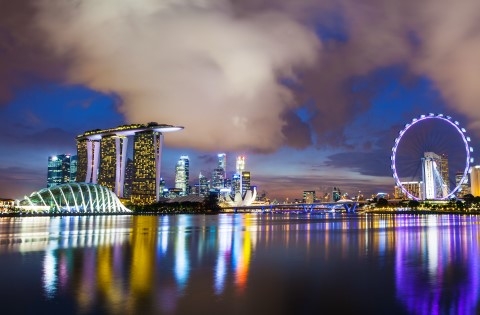
Here's what kept Singapore from topping the 2018 sustainable trade index
It slipped two places down to third this year after topping the list in 2016.
Singapore fell from the top and slip two places in Hinrich Foundation’s sustainable trade index compared to 2016, mainly as a result of lower scores on the environmental pillar. The index scores countries based on three pillars: economic growth, social capital and environmental protection.
According to a report, Singapore fell two spots from second place to fourth place in the environmental category due to poor scores in air pollution (61 points) and environmental standards in trade (50 points), which were both lower than the global average.
Singapore’s air pollution results have been affected by transboundary haze pollution, the report revealed. “Domestically, the nation has taken important steps to enhance local air quality standards for industry and transport, creating incentives to encourage the early replacement of more polluting diesel commercial vehicles and discouraging the use of fossil fuels,” it added.
However, the city scored a perfect 100 in terms of addressing water pollution, significantly better than the global average of 24.3 points. Its score for transfer emissions is at 47 points, higher than the 22.6 average.
“Singapore’s stellar results on the water pollution indicator reflect the nation’s decade-long effort to improve water quality. After cleaning up the catchment area of the Singapore River, the nation is now taking a leading regional role encouraging nations to keep clean seas and oceans,” the report said.
Meanwhile, its rankings in the economic and social category remained unchanged at first and fifth place, respectively.
The report noted that Singapore ranked first in five economic indicators including: current account liberalisation (100), tariffs & non-tariff barriers to trade (100), foreign trade and payments risk (96), trade costs (81), and technological infrastructure (100). Singapore’s trade costs are the lowest of all economies studied.
Its lowest score was in gross fixed capital formation (31). However, it still outperformed other upper-income economies including the US, Taiwan, and Hong Kong in this indicator.
There was “overall stagnation in the social pillar” for nearly all countries, including Singapore.
Singapore was one of the top two countries in the political stability indicator (79), trailing only Japan. In general, political stability is a considered a necessary condition for trade, investment and economic growth.
It was also one of the top two countries in educational attainment (99), directly behind South Korea. “Educational attainment and skill acquisition are key indicators for trade and economic competitiveness,” the report said.
High levels of inequality, as measured by the Gini coefficient (34 points), continue to be an issue in Singapore. “Since 2007, the Gini coefficient has declined and Singapore has taken measures to increase upward mobility,” the report said. “However, income inequalities remain high. Countries should be wary that trade can impact inequality, and similarly, high levels of inequality can result in societal tensions that can become an obstacle to further trade growth.”
























 Advertise
Advertise










